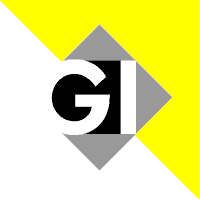Aims and Scope
Information for real life AI applications is usually pervaded by uncertainty and
subject to change, and thus demands for non-classical reasoning approaches. At
the same time, psychological findings indicate that human reasoning cannot be
completely described by classical logical systems. Sources of explanations are
incomplete knowledge, incorrect beliefs, or inconsistencies.
A wide range of reasoning mechanism has to be considered, such as analogical or
defeasible reasoning, possibly in combination with machine learning methods.
The field of knowledge representation and reasoning offers
a rich palette of methods for uncertain reasoning both to describe human
reasoning and to model AI approaches.
Call for Papers
Information for real life AI applications is usually pervaded by uncertainty and subject to change,
and thus demands for non-classical reasoning approaches. At the same time, psychological findings indicate that human reasoning cannot be completely described by classical logical systems.
Sources of explanations are incomplete knowledge, incorrect beliefs, or inconsistencies. A wide
range of reasoning mechanism has to be considered, such as analogical or defeasible reasoning,
possibly in combination with machine learning methods. The field of knowledge representation
and reasoning offers a rich palette of methods for uncertain reasoning both to describe human
reasoning and to model AI approaches. This year we welcome especially contributions on intersections between human and formal aspects such as computational thinking. The aim of this
series of workshops is to address recent challenges and to present novel approaches to uncertain
reasoning and belief change in their broad senses, and in particular provide a forum for research
work linking different paradigms of reasoning. A special focus is on papers that provide a base for
connecting formal-logical models of knowledge representation and cognitive models of reasoning
and learning, addressing formal and experimental or heuristic issues.
Previous events of the Workshop on "Formal and Cognitive Reasoning"
Dresden (2015),
Bremen (2016),
Dortmund (2017),
Berlin (2018),
Kassel (2019), and
Bamberg (2020).
We welcome papers on the following and any related topics:
- Action and change
- Agents and multiagent systems
- Analogical reasoning
- Argumentation theories
- Belief revision and belief update
- Cognitive modeling and empirical data
- Common sense and defeasible reasoning
- Computational thinking
- Decision theory and preferences
- Inductive reasoning and cognition
- Knowledge representation in theory and practice
- Learning and knowledge discovery in data
- Nonmonotonic and uncertain reasoning
- Ontologies and description logics
- Probabilistic approaches of reasoning
- Syllogistic reasoning
Keynote Speaker
Abhaya Nayak
From Belief Revision to Belief Manipulation -- Exploratory Thoughts
Abstract: Belief Dynamics as a field of research is quite mature, with a history of over thirty years. At a very high level, it is akin to science in spirit: to build theories that can be employed to make predictions. Given the belief state of an
agent, and some new information that it has accepted (or rejected), Belief Dynamics aims to predict the new belief state
of the agent.
There is an intreresting converse of this problem that has drawn little attention from the community, that we call
Belief Manipulation. Given that we know the current state of an agent's knowledge, and some proposition that we want them
to believe (or suspend their judgment on), how can we bring about that epistemic change in that agent. In this, the
problem of belief manipulation has the flavour of engineering rather than of science.
Belief manipulation is not as rare a phenomenon as one would like it to be. Political propaganda, fake news,
information warfare, various sorts of scams and market manipulation are all instances of belief manipulation. A good
understanding of this process can help us to potentially detect attempts at belief manipulation and take pre-emptive
measures.
In this talk I will present some preliminary ideas on the logic of belief manipulation.
Publication
The proceedings will be published
in the
CEUR Workshop Proceedings series
(now available:
CEUR Workshop Proceedings, Vol. 2961).
After the workshop, a selection of
extended papers will be published in a special issue of
the
Journal of Applied Logics - IfCoLog Journal.
Program Committee
| Ringo Baumann |
Universität Leipzig, Germany |
| Christoph Benzmüller |
Freie Universität Berlin, Germany |
| François Bry |
LMU München, Germany |
| Emmanuelle-Anna Dietz |
TU Dresden, Germany |
| Lupita Estefania Gazzo Castaneda |
University of Giessen, Germany |
| Haythem O. Ismail |
German University in Cairo, Egypt |
| Manfred Kerber |
University of Birmingham, UK |
| Gabriele Kern-Isberner |
TU Dortmund, Germany |
| Steven Kutsch |
FernUniversität in Hagen, Germany |
| Sylwia Polberg |
Cardiff University, UK |
| Nico Potyka |
Universität Stuttgart, Germany |
| Sebastian Rudolph |
TU Dresden, Germany |
| Ute Schmid |
Universität Bamberg, Germany |
| Claudia Schon |
Universität Koblenz-Landau, Germany |
| Christian Straßer |
Ruhr-University Bochum, Germany |
| Hans Tompits |
TU Wien, Austria |
| Anni-Yasmin Turhan |
TU Dresden, Germany |
| Christoph Wernhard |
Technische Universität Dresden, Germany |
| Stefan Woltran |
TU Wien, Austria |
| Deadline for Submission: |
August 19, 2021
(extended)
|
| Notification of Authors: |
September 10, 2021
|
| Camera-ready Paper: |
September 20, 2021 |
| Workshop: |
September 28, 2021 |
Papers should be formatted according to the
Springer LNCS format.
The length of each paper should not exceed 8-12 pages.
All papers must be written in English and submitted in PDF format via the
EasyChair system.
Local information can be found on the web pages of the
KI-2021 conference.
Last modified
2021-09-16
